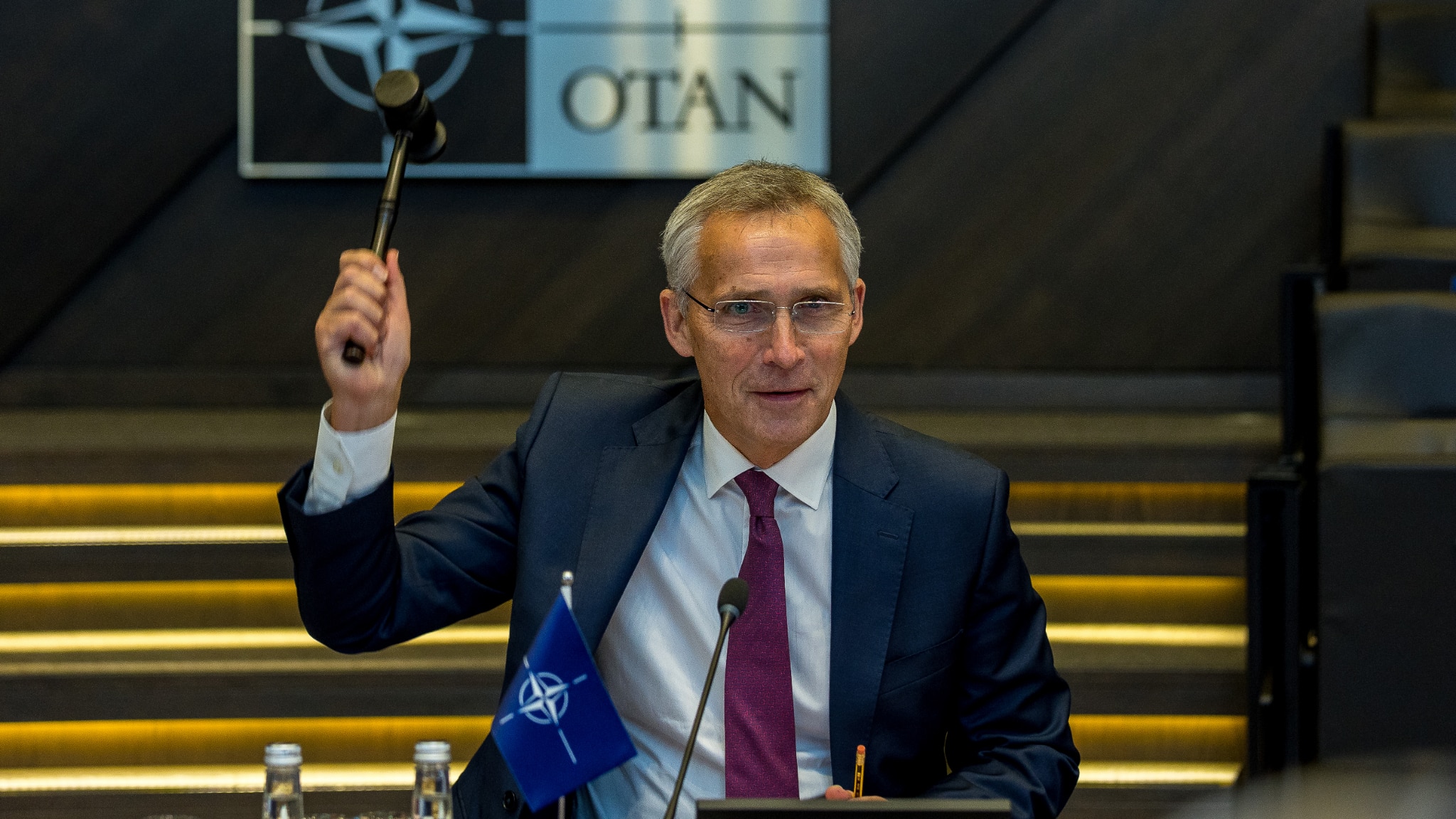"The circumstances under which NATO could use nuclear weapons are extremely remote
. "
NATO Secretary General Jens Stoltenberg said this at the end of the meeting between NATO defense ministers in Brussels, responding to a question about a possible response from the alliance to a Russian attack in Ukraine and Macron's announcement that France, eventually, would not respond with atomic weapons.
"
I will not go into exactly how we respond"
to a possible nuclear attack by Russia against Ukraine, because this is part of our deterrence strategy, we take Putin's threats very seriously "but obviously this would radically change the nature. of the conflict.
Stoltenberg reiterated that the allies today coordinated on nuclear issues during the meeting of the NATO nuclear committee and that the defense ministers have been updated on the
Steadfast Noon exercise
, which involves NATO atomic forces, next week.
"When asked how NATO can distinguish between an exercise and an attack by Russian nuclear forces - expected shortly, even in that routine and annual case - the secretary general replied that
the Alliance" has a "excellent intelligence" and that Russia's nuclear capabilities are "constantly monitored".
Increase the vigilance and safety of underwater critical infrastructures
Stoltenberg then reported that the allied defense ministers have decided to
increase vigilance in the North Sea and the Baltic Sea
, where the naval presence has already doubled, and
to increase the safety of critical underwater infrastructures
also thanks to intelligence sharing: "We have agreed to improve resilience to critical subsea energy infrastructure, including when it comes to cybersecurity."
Allied countries should produce more armaments
Taking stock of the war, the NATO secretary general said that
Ukraine is making good progress
, still pushing back Russian forces both east and south.
NATO allied countries should "make more use
of existing production capacity" of armaments and "investing more to expand it", both in order to replenish the stocks of weapons depleted due to aid to Ukraine, and to "continue to support" Kiev.
NATO allies are providing advanced systems including artillery, air defense and armored vehicles. "
As further support to Kiev, which was also attacked in the last week by the so-called "suicide drones" of Iranian origin, "
NATO has delivered
to Ukraine in a short time
equipment against drones, hundreds of drone jammers,
which can help to render the attacks ineffective and to protect the Ukrainian people and critical infrastructures ", Stoltenberg said.
"Winter is coming", so
NATO's "task" is to allow the Ukrainian armed forces to "conduct significant operations even during the winter
and thus continue to supply them with everything".
"I welcome Spain's announcement today that it will provide launchers to strengthen Ukraine's air defenses.
I thank all of our allies for their significant contributions and urge them to continue stepping up
," he added.
Many countries, Stoltenberg recalled, have announced new military aid to Kiev, such as "USA, Germany, Spain, France, Holland and many others. When we ask the allies to mobilize" the answer comes, "and this makes a big difference", concludes.
Lastly, Stoltenberg spoke
of Bosnia-Herzegovina's possible accession to NATO:
"We will continue to support its efforts towards NATO membership, but in the end it is up to Bosnia-Herzegovina to decide whether or not to apply for membership and then it will be up to the thirty Allied countries decide, thirty-two just enter Finland and Sweden ".
On the sidelines of the NATO ministerial meeting, Germany and 14 other countries signed a
letter of intent for the joint procurement of air defense systems (European Sky Shield Initiative, the 'shield' for the European skies)
.
In addition to Germany, which is the leader of the initiative, Belgium, Bulgaria, the Czech Republic, Finland (which is not yet part of NATO), Hungary, Latvia, the Netherlands, Norway, Romania, Slovakia and Slovenia, the United Kingdom, Lithuania have signed the letter. , Romania, Estonia.
Italy and France have not signed it.

